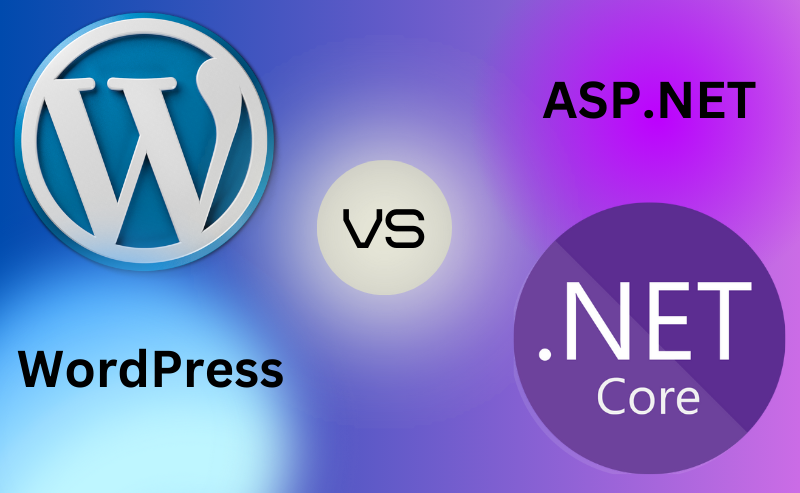When comparing Sitefinity and WordPress, it’s important to consider your specific needs and goals. Sitefinity is a powerful enterprise CMS that offers advanced features, robust security, and multisite management. On the other hand, WordPress is a user-friendly CMS known for its simplicity, flexibility, and large user community.
Both Sitefinity and WordPress deliver solid performance, but Sitefinity excels in handling large-scale websites. It has the capabilities to manage complex websites with unique requirements, providing more flexibility for customization.
In terms of cost-effectiveness, WordPress is generally more affordable, especially for smaller websites with basic needs. However, if you’re a larger organization requiring advanced features and scalability, Sitefinity may offer better value.
For reliable hosting, A2 Hosting and Bluehost are highly recommended options that cater to various users. They can provide the necessary support and features for hosting both Sitefinity and WordPress websites.
What Are The Main Differences Between Sitefinity and WordPress?
The main differences between Sitefinity and WordPress lie in their functionality, flexibility, and user experience. Sitefinity is an enterprise-level content management system (CMS) that offers advanced features such as multisite management, personalized content targeting, and robust security. On the other hand, WordPress is widely used for blogs and small business websites and excels in simplicity and ease of use.
Sitefinity:
– Designed for enterprise-level websites
– Offers advanced features like multisite management and personalized content targeting
– Provides robust security measures
– Provides a centralized dashboard for managing content, users, and configurations
– Offers built-in features for e-commerce and CRM integration
WordPress:
– Widely used for blogs and small business websites
– User-friendly with a straightforward interface
– Extensive plugin ecosystem for easy customization
– Offers simplicity and flexibility
– Accessible to non-technical users
When choosing between Sitefinity and WordPress, it’s important to consider your specific needs and goals. If you require enterprise-level functionality and security, Sitefinity may be a suitable option. However, if simplicity, flexibility, and a large user community are important to you, WordPress could be a more viable choice, along with hosting providers like Bluehost or A2 Hosting.
How Does The Performance of Sitefinity Compare to WordPress?
When comparing Sitefinity and WordPress for performance, it’s important to consider the strengths and weaknesses of each platform. WordPress, being more popular, has a wide range of plugins and themes available. However, installing too many plugins or using poorly optimized themes can negatively impact performance. WordPress may require additional optimization efforts, like caching and image optimization, for optimal performance.
On the other hand, Sitefinity is known for its robustness and scalability. It offers powerful built-in features and functionalities that can enhance performance. Sitefinity also prioritizes performance optimization, including caching mechanisms and code optimization. However, it may require more technical expertise to fully utilize its performance capabilities.
Ultimately, the performance of Sitefinity and WordPress can vary depending on factors like website configuration and optimization levels. If performance is a top concern, considering hosting options like Bluehost or A2 Hosting can further improve website performance.
What Are The Unique Features of Sitefinity vs WordPress for Content Management?
Sitefinity and WordPress are both popular content management systems (CMS), but they have different unique features. Sitefinity is known for its robust enterprise-level capabilities. It offers advanced security features, multi-site management, and granular permissions settings, making it suitable for organizations with complex content management needs. Additionally, Sitefinity supports multiple languages out of the box, making it ideal for global enterprises.
In contrast, WordPress excels in its simplicity and user-friendliness. It is highly customizable, allowing users to easily create and modify their websites using a vast library of themes and plugins. With a large and active community, WordPress provides continuous support and updates. It is a great choice for individuals, small businesses, and bloggers who prioritize simplicity and flexibility.
When choosing between Sitefinity and WordPress, it’s important to consider other factors such as hosting options. Bluehost and A2 Hosting are two popular hosting providers that offer optimized environments for hosting WordPress websites. These hosting options can further enhance the performance and reliability of your WordPress site.
Ultimately, the choice between Sitefinity and WordPress depends on your specific requirements and preferences. Sitefinity is ideal for organizations with complex content management needs, while WordPress is a versatile and user-friendly option for individuals and small businesses. Consider your priorities and explore hosting options to make an informed decision.
Which Is More Cost-Effective: Sitefinity or WordPress?
When it comes to cost-effectiveness, WordPress is the more budget-friendly option compared to Sitefinity. With its open-source nature, WordPress offers a variety of free themes and plugins, allowing you to create a website without breaking the bank. Hosting providers like Bluehost or A2 Hosting also offer affordable plans specifically tailored for WordPress websites.
On the other hand, Sitefinity, being a proprietary CMS developed by Telerik, does come with a licensing fee. While it does offer advanced features and functionalities, this can make it a more expensive choice, especially for small businesses or individuals with tight budgets. It should be noted that Sitefinity does have a free version, but it has limited features and may not be suitable for more complex websites.
Ultimately, the decision between Sitefinity and WordPress depends on your specific needs and budget. If you’re looking for a cost-effective solution with plenty of customization options, WordPress paired with a hosting provider like Bluehost or A2 Hosting can be an excellent choice. However, if you require advanced features and are willing to invest in a proprietary CMS, Sitefinity may be worth considering.
Can You Customize Sitefinity and WordPress Equally, or Does One Have More Flexibility?
When it comes to customization, both Sitefinity and WordPress offer a high level of flexibility. However, there are some differences to consider. WordPress, being an open-source platform, allows for extensive customization through plugins, themes, and code modifications. This means you can personalize your website according to your specific needs and preferences.
On the other hand, Sitefinity, a proprietary content management system, also offers customization options, but they may be more limited compared to WordPress. However, Sitefinity provides a user-friendly interface and a comprehensive set of built-in features, which can make customization easier for those who may not have extensive technical skills.
The level of flexibility and customization will ultimately depend on your website’s specific requirements and your comfort level with coding and technical modifications. It’s worth noting that both Sitefinity and WordPress have a large and active community of developers and users, providing support and resources for customization.
If you’re looking for a reliable hosting provider that supports both Sitefinity and WordPress, Bluehost and A2 Hosting are great options. They offer a solid foundation for your website, regardless of the platform you choose.
Sitefinity vs WordPress: Which CMS Is the Best Fit for Your Website’s Needs?
In conclusion, when weighing ‘Sitefinity vs WordPress,’ it is evident that each platform caters to different audiences with distinct needs. Sitefinity emerges as the go-to solution for larger enterprises and organizations seeking advanced features, security, and scalability. Its enterprise-oriented architecture is designed to handle complex, content-rich websites that demand a high level of customization and control.
On the other hand, WordPress stands out for its user-friendly interface, extensive customization options through its vast plugin ecosystem, and a strong community that makes it the ideal choice for small to medium-sized businesses, bloggers, and individuals looking for cost-effectiveness and ease of use.
Both platforms have their merits, and the decision ultimately hinges on the specific requirements of your project—whether you prioritize flexibility and cost or require robust enterprise features. With reliable hosting providers like Bluehost or A2 Hosting, both Sitefinity and WordPress can deliver exceptional performance and satisfaction.
Choosing between Sitefinity and WordPress comes down to understanding what you value most in a CMS—be it simplicity and affordability or advanced functionalities for large-scale operations. Regardless of your choice, both platforms are capable of building a strong online presence for your brand or organization.

